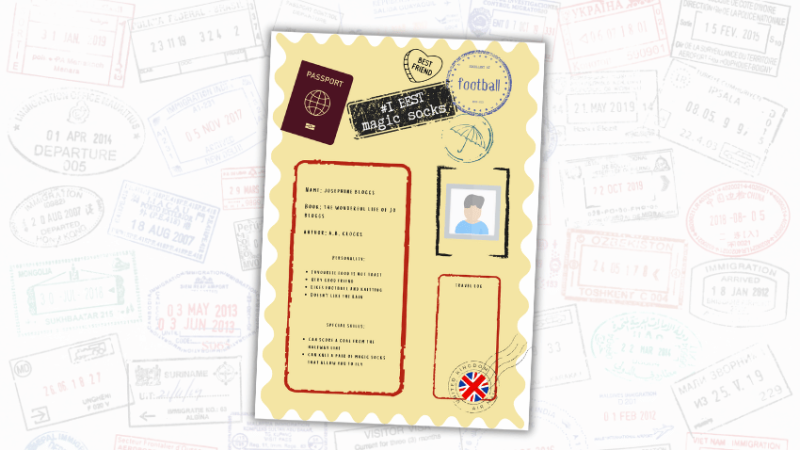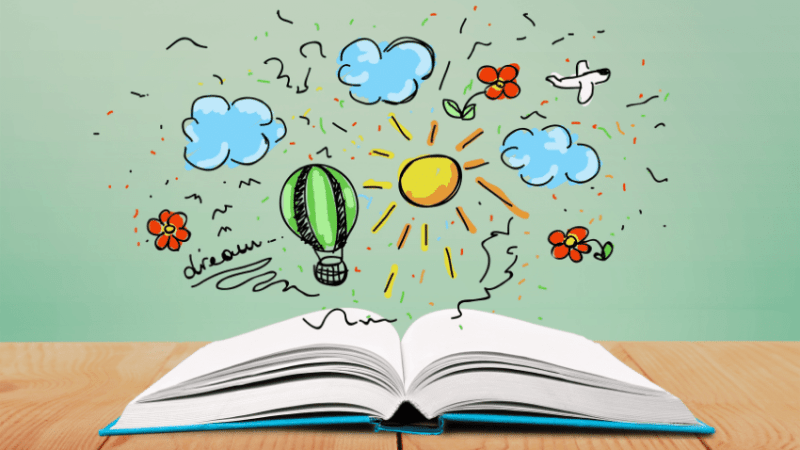Michael Rosen – Best classroom resources for primary
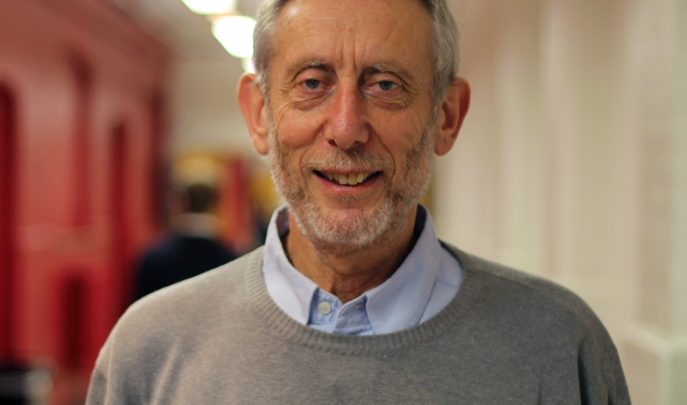
Bring literature to life with Michael Rosen’s distinctive blend of humour and heart…

- by Teachwire
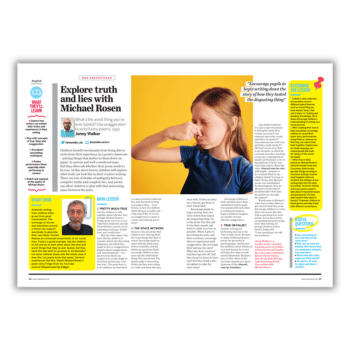
Use Michael Rosen’s vibrant storytelling and playful language to inspire creativity, boost literacy skills and engage your learners. Here’s our pick of great resources for the primary classroom…
Table of contents
Michael Rosen Day
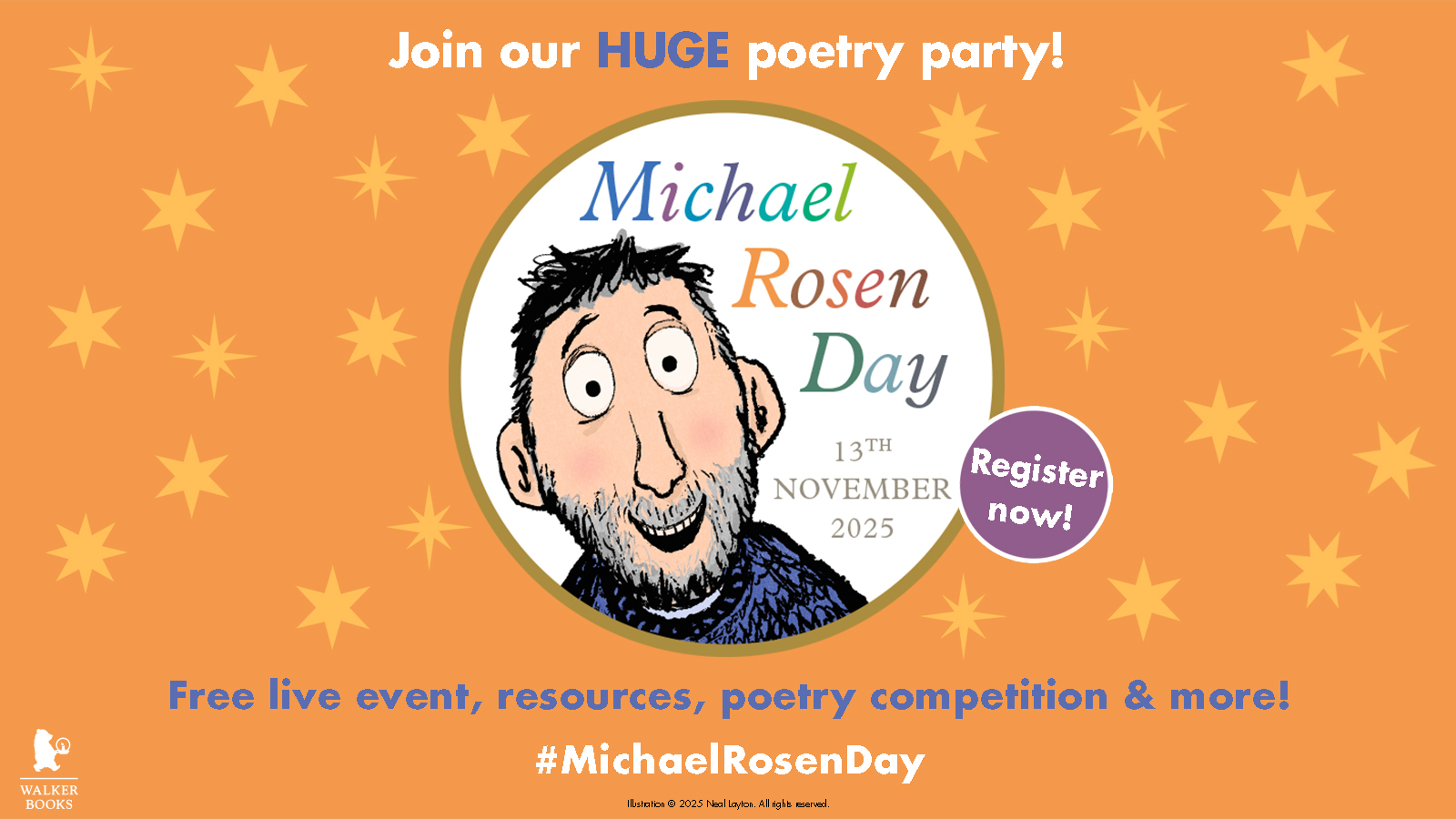
Michael Rosen Day takes place on Thursday 13th November 2025. Attend a free virtual event with Michael at 10am. You can also download free Michael Rosen Day resources to celebrate.
Michael Rosen poetry resources
Performance poetry lesson plan
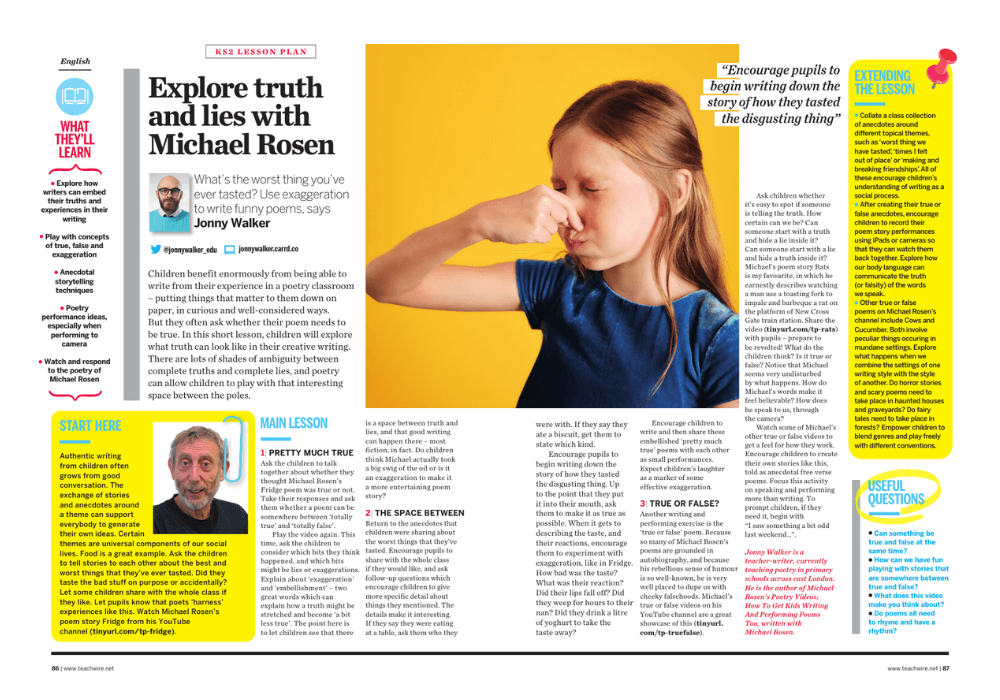
Use exaggeration to write funny KS2 poems with this free English lesson plan by teacher Jonny Walker. Children will play with concepts of true, false and exaggeration, using Fridge by Michael Rosen as a jumping off point.
Michael Rosen podcast
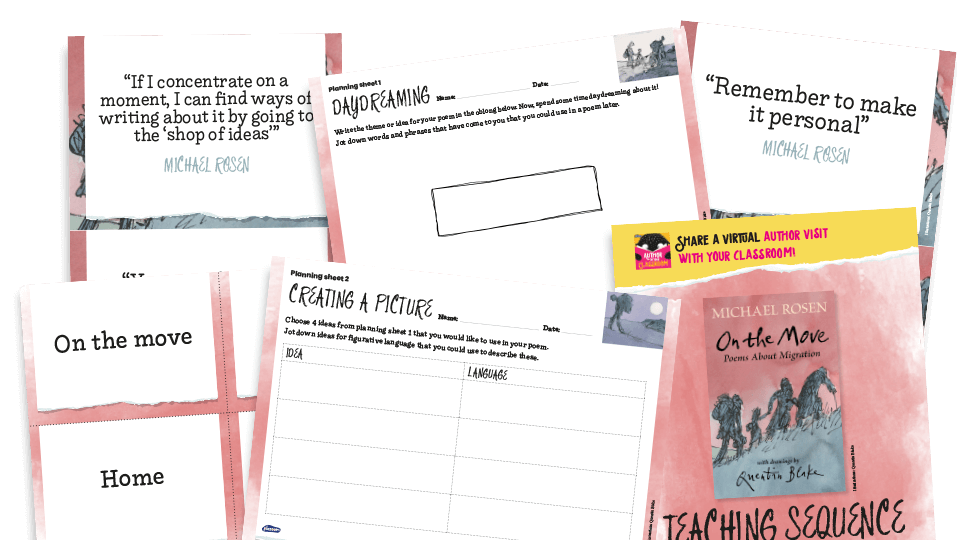
The Author In Your Classroom podcast has been created especially for sharing in schools. In each episode, a beloved children’s author shares writing tips and advice. There’s an exclusive resources pack to go with each episode too.
Episode 16 features Michael Rosen talking about migration and his poetry collection ‘On the Move’. Download the free resource pack to receive a PowerPoint, poem, images for a KS2 poems wall display, planning sheets, teacher notes and more.
Michael’s YouTube channel
You’ll find Michael Rosen’s popular YouTube Channel at Kids’ Poems and Stories with Michael Rosen. There are over 200 videos there, with new ones added regularly.
Creating imaginative characterisation
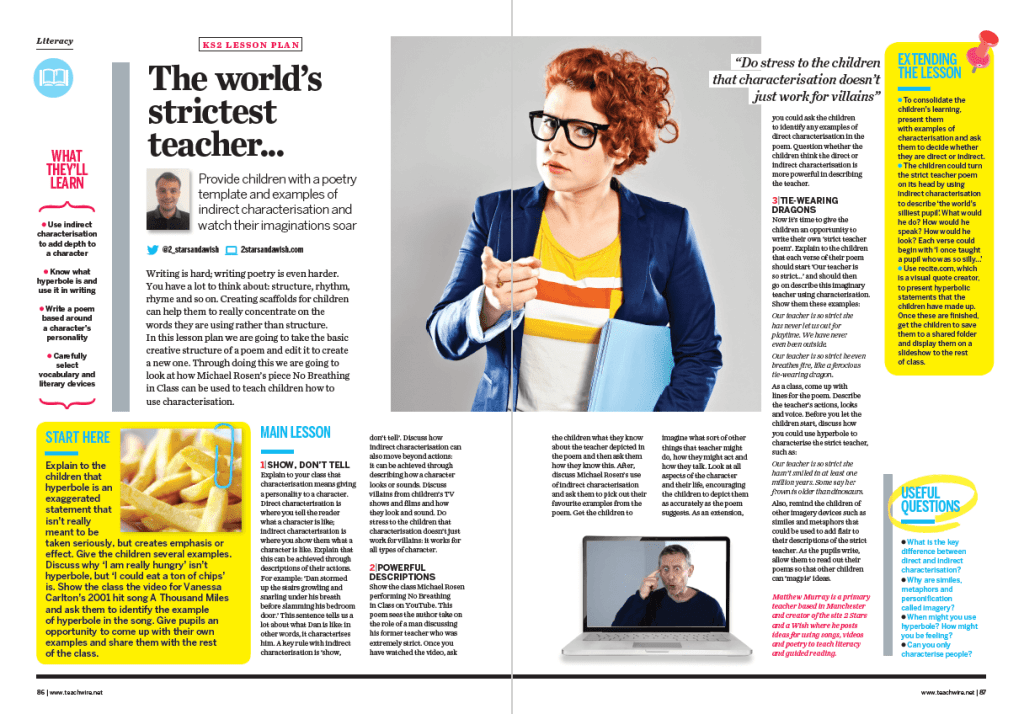
In this KS2 lesson plan, students will take the basic creative structure of a poem and edit it to create a new one. You’ll look at Michael Rosen’s poem, No Breathing in Class, to learn how to use characterisation.
Poetry assembly
Use this poetry assembly plan to explore the theme of ‘truth’. Watch the above video of Michael Rosen reading his poem, Newcomers, then try the suggested classroom activities.
More Michael Rosen poetry resources
- KS2 cross-curricular activities for five Michael Rosen poems
- BookTrust Michael Rosen poetry resources and ideas
Michael Rosen books
We’re Going on a Bear Hunt
We’re Going on a Bear Hunt by Michael Rosen engages young learners through its repetitive, rhythmic text and interactive storyline.
The journey taken by the family in the story allows children to explore different environments and sounds. This makes it ideal for fostering language development and encouraging active participation.
KS1 geography lesson
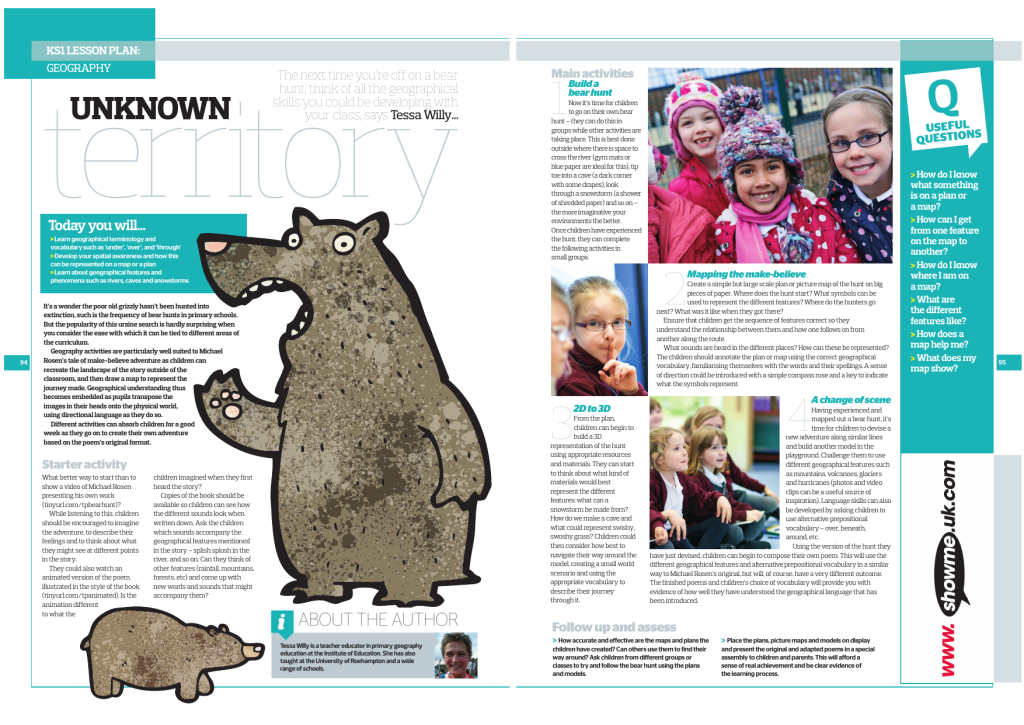
The next time you’re off on a bear hunt, think of all the geographic skills you could be developing with your class. Get started with this KS1 maps lesson plan.
Children will recreate the landscape of the story outside of the classroom. They’ll then draw a map to represent the journey made.
Chocolate Cake
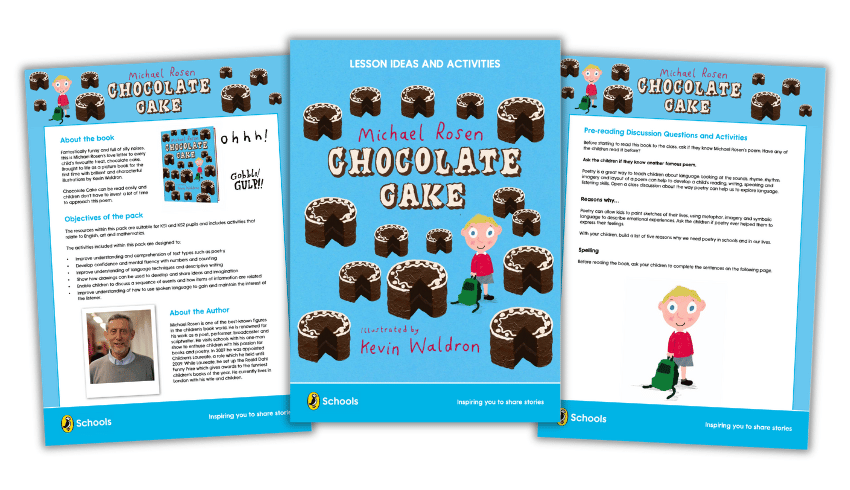
The resources within this Chocolate Cake pack from Puffin are suitable for KS1 and KS2 pupils and includes activities that relate to English, art and mathematics.
Who is Michael Rosen?
Michael Rosen is one of the most popular authors for children. His bestselling titles include We’re Going on a Bear Hunt, A Great Big Cuddle and Michael Rosen’s Sad Book.
A popular radio broadcaster, distinguished critic and academic, and multi-award-winning poet, Michael was appointed the Children’s Laureate from 2007 to 2009. He is now Professor of Children’s Literature at Goldsmiths, University of London.
Michael graduated in the late 60s from Wadham College, Oxford, having switched from studying medicine to English language and literature, before finding work at the BBC in radio documentaries and children’s television.
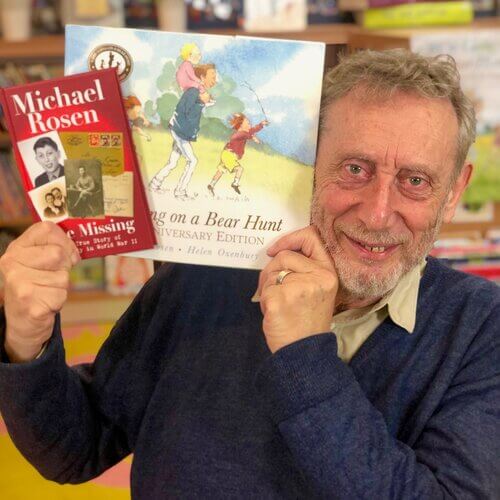
Following the publication of his first book for children (the Quentin Blake-illustrated Mind Your Own Business), he embarked on a writing career that’s since seen his name adorn over 250 covers.
Advocate for children’s literacy
Michael is an outspoken advocate for children’s literacy and has been involved in various campaigns to encourage reading in schools and at home.
“When I was Children’s Laureate, I met with Ed Balls, then Secretary of State for Education, and Jim Knight, Minister of Schools,” Michael recalls. “I told them the Labour government was missing a trick by not putting ‘reading for pleasure’ as a core plank of policy.
“I’ve put in an enormous amount of effort to try and encourage that, because even when we’re reading for fun – be it comics or whatever – that encoding into language of knowledge (in the broadest sense), and the job the child then does of decoding, understanding and interpreting matches very closely with what goes on in schools.
Why teach with Michael Rosen books?
A frequent observation of Michael Rosen’s work is that he has an unerring ability to tap into the minds of his young readers – writing in a way that speaks deeply to how children see and perceive the world, without talking down to them.
In terms of what he puts this down to, Michael says, “Part of it is that my parents dignified childhood – they put stuff in front of us [he and his older brother] that they thought we would benefit from at that moment.
“They engaged with their children in the here and now, and would reflect our own lives back at us – almost as if we were doing sketches about our own lives, which made it much easier to remember things later.
“My wife and I have similarly made enormous efforts to dignify our own children’s lives. That means listening to them, talking ‘with’ them rather than ‘at’ them, and trying to figure out what they’re about.
“From going into schools, I’ve also become acutely aware of the power relationships that go on between ‘education’ and the culture, knowledge and language of children themselves.
“When I write poems and stories, what interests me is those little clashes and ironies.”
Main image courtesy of Goldsmiths, University of London






